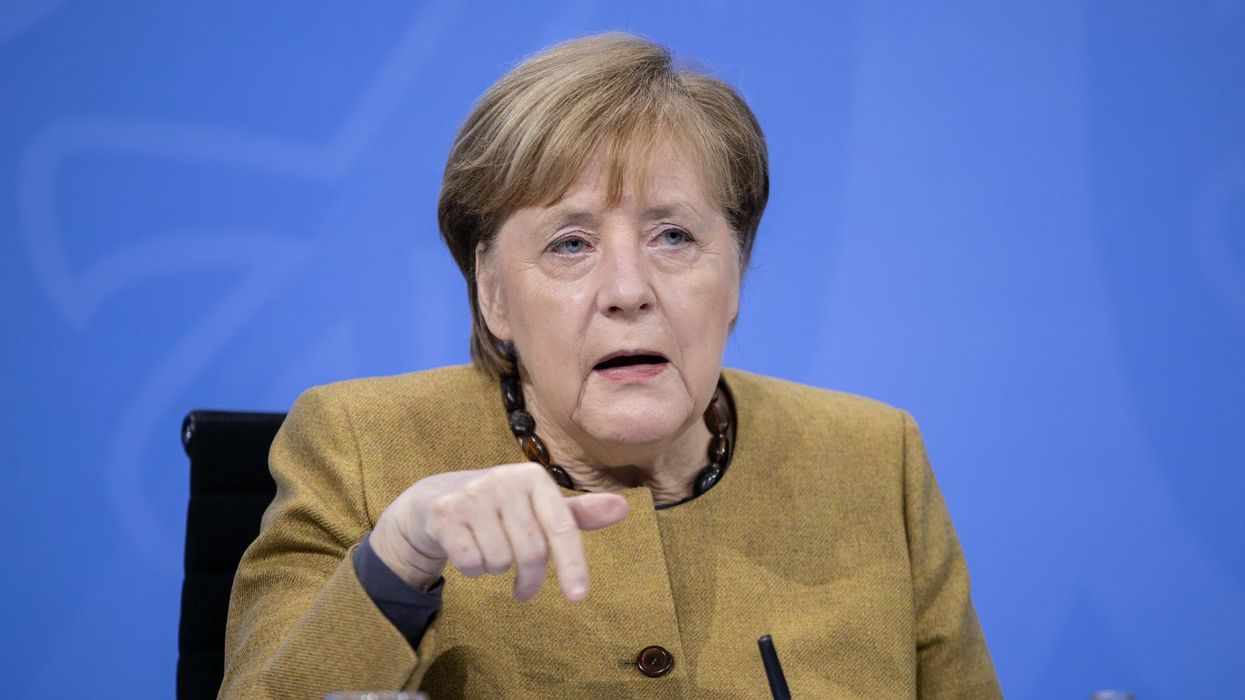
German Chancellor Angela Merkel (Photo by Andreas Gora - Pool/Getty Images)

'Problematic'
Following the riots at the U.S. Capitol last week, activists put extreme pressure on social media companies to ban President Donald Trump — and some of his supporters — from their platforms.
Big Tech acquiesced, and by Friday night, Twitter had permanently banned Trump, Facebook and Instagram suspended him indefinitely, and Snapchat disabled his account. Shopify and Twitch both suspended and banned any accounts even related to President Trump. PayPal, Discord, Tiktok, YouTube, Pinterest, Google, and Apple have taken actions against Trump, his supporters, and any activities or content related to the president.
Naturally, the president has received support from well-known figures on the right — regardless of whether they were on board with his claims of massive election fraud that led to Wednesday's protests and riots — who denounced Big Tech's efforts to silence the president.
Even the ACLU came out against the de-platforming of the president.
Now the president is getting backing from a couple of unexpected places across the pond: Germany and France.
German Chancellor Angela Merkel said Monday through chief spokesman Steffen Seibert that Twitter's Trump ban is a problem and that corporations should not be messing with free speech, Fortune reported.
"The chancellor sees the complete closing down of the account of an elected president as problematic," Seibert said, according to Fortune, adding that the freedom of speech "can be interfered with, but by law and within the framework defined by the legislature — not according to a corporate decision."
Seibert added that Merkel believes the U.S. should pass regulations to restrict online incitement rather than just leaving it up to Big Tech, the Financial Times reported. He went on to say that speech should be restricted by government, not "the management of social media platforms," highlighting a difference between the U.S. approach to policing internet platforms and how the E.U. approaches the issue, as the Financial Times pointed out:
But Ms Merkel said through her spokesman that the US government should follow Germany's lead in adopting laws that restrict online incitement, rather than leaving it up to platforms such as Twitter and Facebook to make up their own rules.
The intervention highlights a key area of disagreement between the US and Europe on how to regulate social media platforms. The EU wants to give regulators more powers to force Internet platforms such as Facebook or Twitter to remove illegal content.
In the US, technology companies have traditionally been left to themselves to police their own sites, though momentum is gathering behind political moves to curtail their regulatory freedoms. Several members of Congress are working on bills which would limit the legal protections social media companies have from being sued for third party content posted on their sites.
France Finance Minister Bruno Le Maire echoed Merkel's criticism of Big Tech's anti-speech moves. Le Maire told France Inter, the Financial Times said, that he was "shocked" by Twitter's move.
"Digital regulation should not be done by the digital oligarchy itself," he said, according to a translation provided by the Financial Times, adding, "Regulation of the digital arena is a matter for the sovereign people, governments and the judiciary."